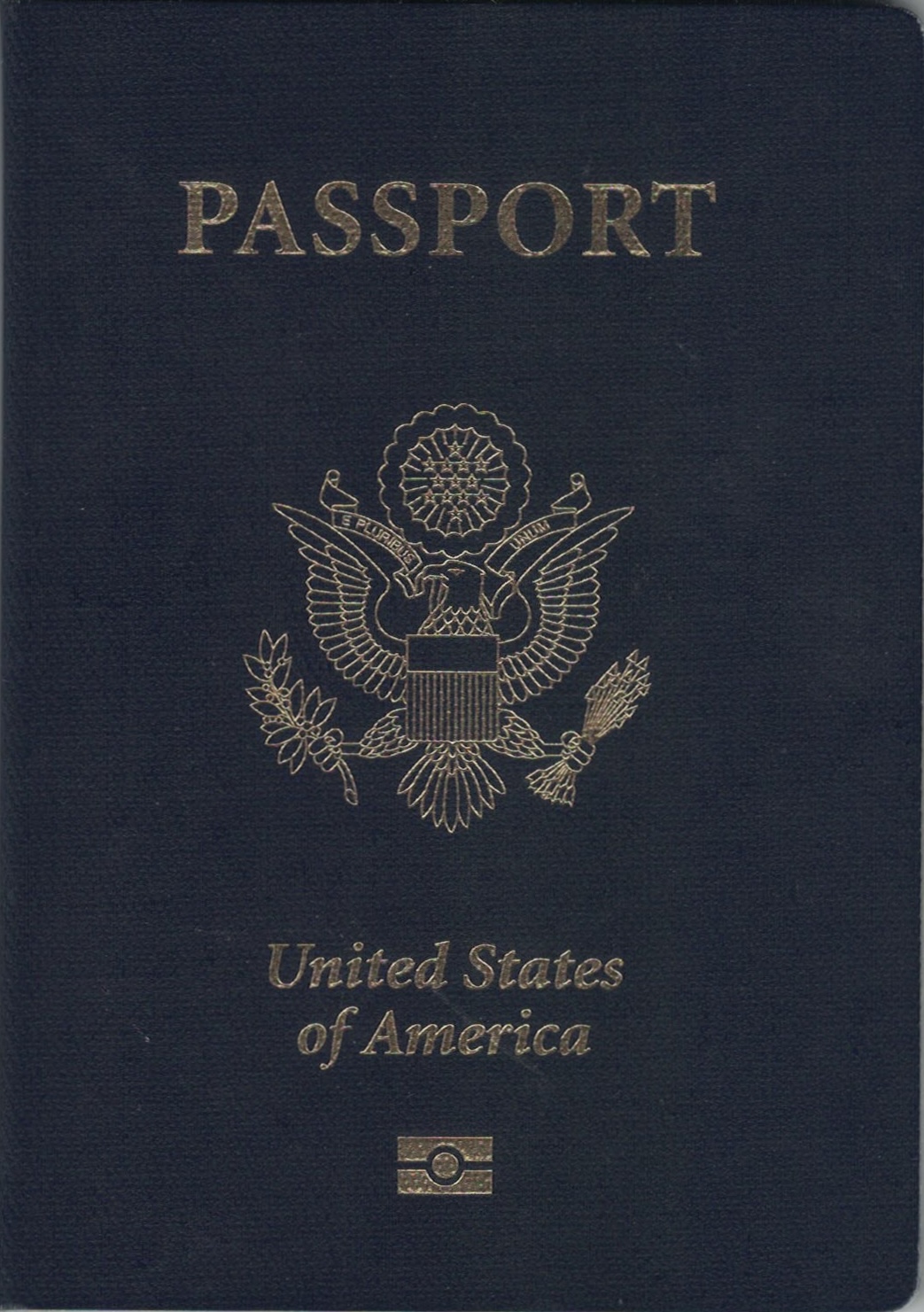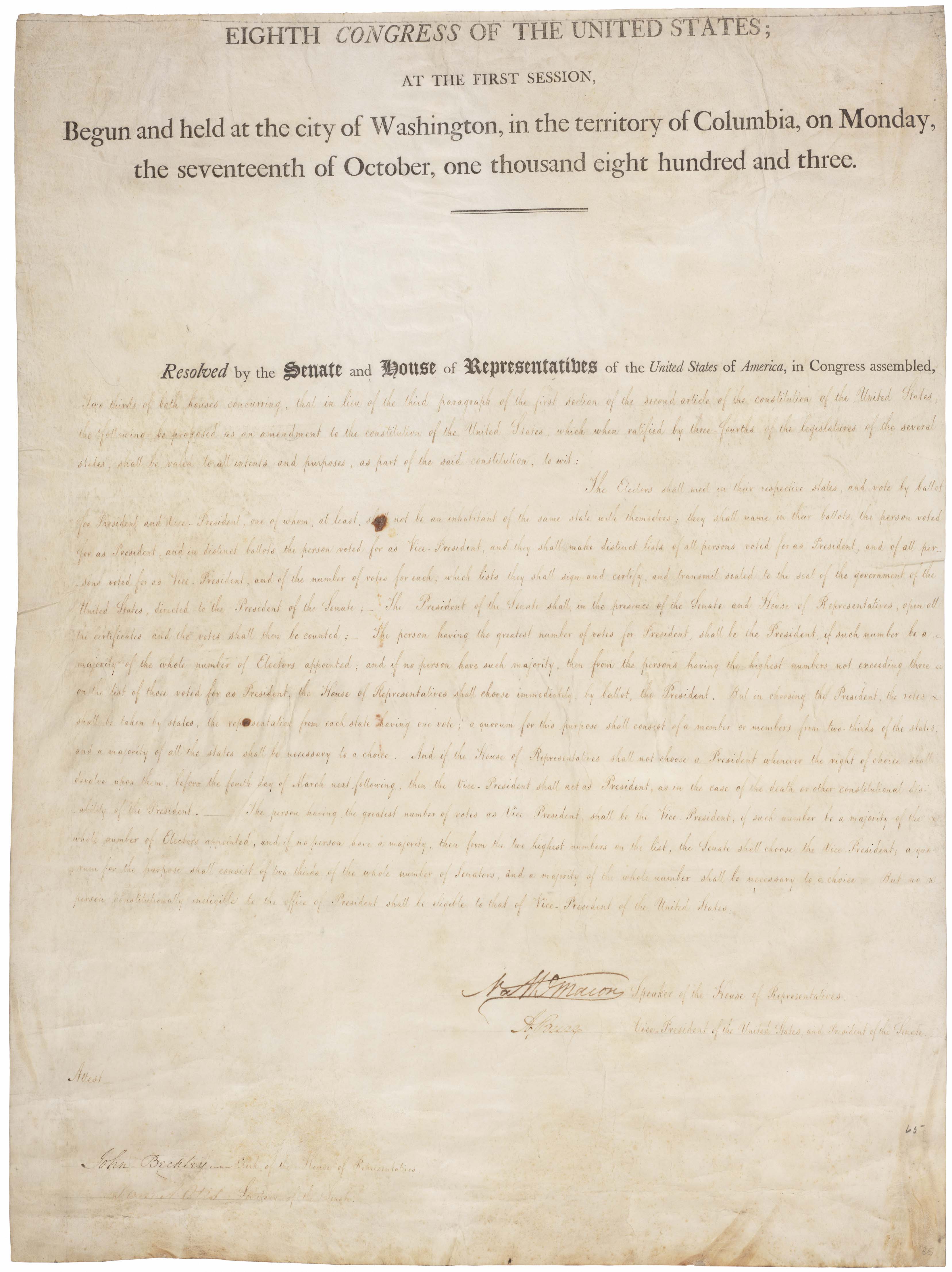|
Natural-born-citizen Clause (United States)
Status as a natural-born citizen of the United States is one of the eligibility requirements established in the United States Constitution for holding the office of president or vice president. This requirement was intended to protect the nation from foreign influence. The U.S. Constitution uses but does not define the phrase "natural born Citizen" and various opinions have been offered over time regarding its exact meaning. The consensus of early 21st-century constitutional and legal scholars, together with relevant case law, is that natural-born citizens include, subject to exceptions, those born in the United States. As to those born elsewhere who meet the legal requirements for birthright citizenship, the consensus emerging as of 2016 was that they also are natural-born citizens. The first nine presidents and the 12th president (Zachary Taylor) were all citizens at the adoption of the constitution in 1789, with all being born within the territory held by the United States ... [...More Info...] [...Related Items...] OR: [Wikipedia] [Google] [Baidu] |
United States
The United States of America (U.S.A. or USA), commonly known as the United States (U.S. or US) or America, is a country primarily located in North America. It consists of 50 states, a federal district, five major unincorporated territories, nine Minor Outlying Islands, and 326 Indian reservations. The United States is also in free association with three Pacific Island sovereign states: the Federated States of Micronesia, the Marshall Islands, and the Republic of Palau. It is the world's third-largest country by both land and total area. It shares land borders with Canada to its north and with Mexico to its south and has maritime borders with the Bahamas, Cuba, Russia, and other nations. With a population of over 333 million, it is the most populous country in the Americas and the third most populous in the world. The national capital of the United States is Washington, D.C. and its most populous city and principal financial center is New York City. Paleo-Americ ... [...More Info...] [...Related Items...] OR: [Wikipedia] [Google] [Baidu] |
Political Question
In United States constitutional law, the political question doctrine holds that a constitutional dispute that requires knowledge of a non-legal character or the use of techniques not suitable for a court or explicitly assigned by the Constitution to the U.S. Congress, or the President of the United States, lies within the political, rather than the legal, realm to solve, and judges customarily refuse to address such matters. The idea of a political question is closely linked to the concept of justiciability, as it comes down to a question of whether or not the court system is an appropriate forum in which to hear the case. This is because the court system only has the authority to hear and decide a legal question, not a political one. Legal questions are deemed to be justiciable, while political questions are nonjusticiable.Huhn, Wilson R. ''American Constitutional Law Volume 1''. 2016. One scholar explained: A ruling of nonjusticiability, in the end, prevents the issue that ... [...More Info...] [...Related Items...] OR: [Wikipedia] [Google] [Baidu] |
Great Britain
Great Britain is an island in the North Atlantic Ocean off the northwest coast of continental Europe. With an area of , it is the largest of the British Isles, the largest European island and the ninth-largest island in the world. It is dominated by a maritime climate with narrow temperature differences between seasons. The 60% smaller island of Ireland is to the west—these islands, along with over 1,000 smaller surrounding islands and named substantial rocks, form the British Isles archipelago. Connected to mainland Europe until 9,000 years ago by a landbridge now known as Doggerland, Great Britain has been inhabited by modern humans for around 30,000 years. In 2011, it had a population of about , making it the world's third-most-populous island after Java in Indonesia and Honshu in Japan. The term "Great Britain" is often used to refer to England, Scotland and Wales, including their component adjoining islands. Great Britain and Northern Ireland now constitute the ... [...More Info...] [...Related Items...] OR: [Wikipedia] [Google] [Baidu] |
Calvin's Case
''Calvin's Case'' (1608), 77 ER 377, (1608) Co Rep 1a, also known as the ''Case of the Postnati'', was a 1608 English legal decision establishing that a child born in Scotland, after the Union of the Crowns under King James VI and I in 1603, was considered under the common law to be an English subject and entitled to the benefits of English law. ''Calvin's Case'' was eventually adopted by courts in the United States, and the case played an important role in shaping the American rule of birthright citizenship via ''jus soli'' ("law of the soil", or citizenship by virtue of birth within the territory of a sovereign state). Facts Under the feudal system, the allegiance owed to a king by his subjects—connected as it was to the holding of interests in land—ruled out the possibility of any given individual holding land in two different kingdoms. Robert Calvin, born in Scotland in November 1605, was granted estates in England, but his rights to that were challenged on the grounds ... [...More Info...] [...Related Items...] OR: [Wikipedia] [Google] [Baidu] |
Qualifications Of Senators
Qualification is either the process of qualifying for an achievement, or a credential attesting to that achievement, and may refer to: * Professional qualification, attributes developed by obtaining academic degrees or through professional experience * Qualification badge, a decoration of People's Liberation Army Type 07 indicating military rank or length of service * Qualifications-Based Selection (QBS), a competitive contract procurement process established by the United States Congress * Qualifications for professional social work, professional degrees in social work in various nations * Qualification problem, the impossibility of listing all the preconditions required for an action to have its intended effect * Qualification principle, in programming language theory, the statement that syntactic classes may admit local definitions * Qualification types in the United Kingdom, different levels of academic, vocational or skills-related education achievements * International Quali ... [...More Info...] [...Related Items...] OR: [Wikipedia] [Google] [Baidu] |
Qualifications Of Members
Qualification is either the process of qualifying for an achievement, or a credential attesting to that achievement, and may refer to: * Professional qualification, attributes developed by obtaining academic degrees or through professional experience * Qualification badge, a decoration of People's Liberation Army Type 07 indicating military rank or length of service * Qualifications-Based Selection (QBS), a competitive contract procurement process established by the United States Congress * Qualifications for professional social work, professional degrees in social work in various nations * Qualification problem, the impossibility of listing all the preconditions required for an action to have its intended effect * Qualification principle, in programming language theory, the statement that syntactic classes may admit local definitions * Qualification types in the United Kingdom, different levels of academic, vocational or skills-related education achievements * International Quali ... [...More Info...] [...Related Items...] OR: [Wikipedia] [Google] [Baidu] |
Citizenship In The United States
Citizenship of the United States is a legal status that entails Americans with specific rights, duties, protections, and benefits in the United States. It serves as a foundation of fundamental rights derived from and protected by the Constitution and laws of the United States, such as freedom of expression, due process, the rights to vote (however, not all citizens have the right to vote in all federal elections, for example, those living in Puerto Rico), live and work in the United States, and to receive federal assistance. There are two primary sources of citizenship: birthright citizenship, in which persons born within the territorial limits of the United States are presumed to be a citizen, or—providing certain other requirements are met—born abroad to a United States citizen parent, and naturalization, a process in which an eligible legal immigrant applies for citizenship and is accepted. The first of these two pathways to citizenship is specified in the Citizenship ... [...More Info...] [...Related Items...] OR: [Wikipedia] [Google] [Baidu] |
Article One Of The United States Constitution
Article One of the United States Constitution establishes the legislative branch of the Federal government of the United States, federal government, the United States Congress. Under Article One, Congress is a bicameral legislature consisting of the United States House of Representatives, House of Representatives and the United States Senate, Senate. Article One grants Congress various Enumerated powers (United States), enumerated powers and the ability to pass laws "Necessary and Proper Clause, necessary and proper" to carry out those powers. Article One also establishes the procedures for passing a bill and places various limits on the powers of Congress and the U.S. state, states from abusing their powers. Article One Vesting Clause grants all federal legislative power to Congress and establishes that Congress consists of the House of Representatives and the Senate. In combination with the Vesting Clauses of Article Two and Article Three, the Vesting Clause of Article One estab ... [...More Info...] [...Related Items...] OR: [Wikipedia] [Google] [Baidu] |
Fourteenth Amendment To The United States Constitution
The Fourteenth Amendment (Amendment XIV) to the United States Constitution was adopted on July 9, 1868, as one of the Reconstruction Amendments. Often considered as one of the most consequential amendments, it addresses citizenship rights and equal protection under the law and was proposed in response to issues related to former slaves following the American Civil War. The amendment was bitterly contested, particularly by the states of the defeated Confederacy, which were forced to ratify it in order to regain representation in Congress. The amendment, particularly its first section, is one of the most litigated parts of the Constitution, forming the basis for landmark Supreme Court decisions such as ''Brown v. Board of Education'' (1954) regarding racial segregation, ''Roe v. Wade'' (1973) regarding abortion ( overturned in 2022), ''Bush v. Gore'' (2000) regarding the 2000 presidential election, and ''Obergefell v. Hodges'' (2015) regarding same-sex marriage. The amendment ... [...More Info...] [...Related Items...] OR: [Wikipedia] [Google] [Baidu] |
Vice-President Of The United States
The vice president of the United States (VPOTUS) is the second-highest officer in the executive branch of the U.S. federal government, after the president of the United States, and ranks first in the presidential line of succession. The vice president is also an officer in the legislative branch, as the president of the Senate. In this capacity, the vice president is empowered to preside over Senate deliberations at any time, but may not vote except to cast a tie-breaking vote. The vice president is indirectly elected together with the president to a four-year term of office by the people of the United States through the Electoral College. The modern vice presidency is a position of significant power and is widely seen as an integral part of a president's administration. While the exact nature of the role varies in each administration, most modern vice presidents serve as a key presidential advisor, governing partner, and representative of the president. The vice president is ... [...More Info...] [...Related Items...] OR: [Wikipedia] [Google] [Baidu] |
Twelfth Amendment To The United States Constitution
The Twelfth Amendment (Amendment XII) to the United States Constitution provides the procedure for electing the president and vice president. It replaced the procedure provided in Article II, Section 1, Clause 3, by which the Electoral College originally functioned. The amendment was proposed by the Congress on December 9, 1803, and was ratified by the requisite three-fourths of state legislatures on June 15, 1804. The new rules took effect for the 1804 presidential election and have governed all subsequent presidential elections. Under the original rules of the Constitution, each member of the Electoral College cast two electoral votes, with no distinction made between electoral votes for president and electoral votes for vice president. The presidential candidate receiving the greatest number of votes—provided that number at least equaled a majority of the electors—was elected president, while the presidential candidate receiving the second-most votes was elected vice ... [...More Info...] [...Related Items...] OR: [Wikipedia] [Google] [Baidu] |
Duke Law Journal
The ''Duke Law Journal'' is a student-run law review and the premier legal periodical of Duke University School of Law. The journal publishes general-interest articles and student notes in eight issues each year. History and Overview The journal was established in March 1951 as the ''Duke Bar Journal'' and obtained its current title in 1957. In 1969, the journal published its inaugural Administrative Law Symposium issue, a tradition that continues today. Volume 1 of the ''Duke Bar Journal'' had two issues and 259 pages. In 1959, the journal grew to four issues and 649 pages, growing again in 1970 to six issues and 1263 pages. More recently, Volume 60 had just over 1900 pages in eight issues. The ''Duke Law Journal'' is consistently ranked among the most cited law reviews according to the Washington and Lee University School of Law's rankings. Staff and selection of membership The journal selects approximately 40 second-year law students for membership. This selection occur ... [...More Info...] [...Related Items...] OR: [Wikipedia] [Google] [Baidu] |







